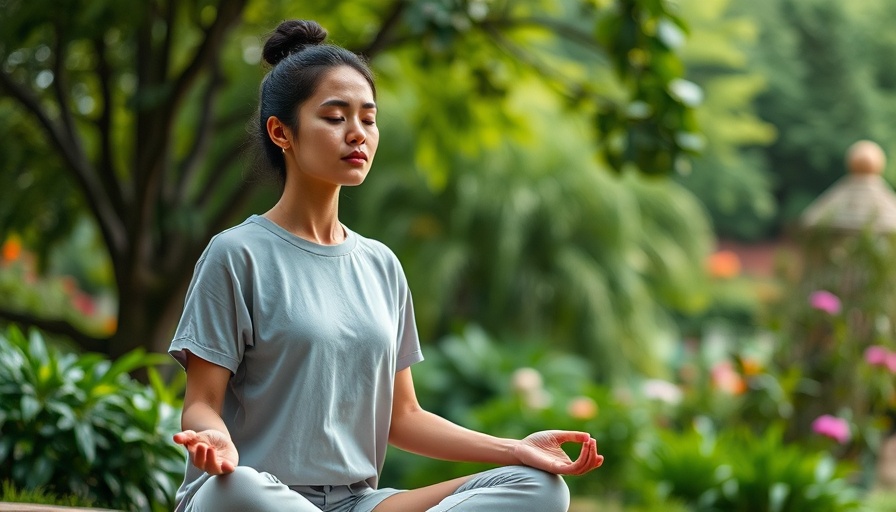
Embracing Menopause: A Journey of Mindfulness and Self-Care
As women approach midlife, the often-avoided topic of menopause comes to the forefront, accompanied by a whirlwind of physical and emotional changes. For many, this transition means grappling with symptoms such as mood swings, brain fog, and fatigue—a daunting reality for those navigating a busy life. This period of transformation, however, can also be embraced as an opportunity for growth, self-acceptance, and mindfulness.
The Mindful Menopause Guide: Your Roadmap
Recognizing the need for guidance during this significant life change, Happier Meditation collaborated with mindfulness expert Diane Winston to create The Mindful Menopause Guide. This free resource is thoughtfully designed to help women navigate the complexities of menopause with grace and awareness. Inside, women will find tailored guided mindfulness sessions addressing menopause-specific symptoms, along with personal notes from Winston that resonate with shared experiences.
Mindfulness Meditation Practices for Navigating Change
Mindfulness meditation is a foundational tool for managing anxiety and emotional upheaval that may arise during menopause. The guide provides practical approaches, including breathing exercises that have been shown to ease anxiety attacks effectively. Incorporating daily meditation practices for anxiety and stress relief into a busy routine can foster a sense of peace and connection to your body as it undergoes changes.
Breaking the Silence: Why Menopause Conversations Matter
Despite being a natural phase of life, conversations around menopause often carry a stigma, leading many to feel isolated or ashamed. As Lori Deschene articulates, acknowledging and discussing these experiences openly can dismantle the taboos, enabling women not only to find community but also seek the tools necessary for thriving during this transition. Establishing a support network can become a vital component of facing menopause with resilience and humor.
Reflective Practices: Connecting with Yourself
Part of the journey through menopause involves self-reflection and intentionality. The Mindful Menopause Guide encourages users to engage in reflective prompts aimed at fostering a deeper connection with oneself. This practice allows women to explore their emotions candidly, helping them cultivate compassion for themselves and their bodies during this evolving stage of life.
Future Insights: The Landscape of Menopause Awareness
As more women share their experiences and resources like The Mindful Menopause Guide gain visibility, there's potential for a cultural shift towards embracing midlife transitions. The more we prioritize these conversations, the better equipped society becomes to support women. Furthermore, when awareness increases, effective mindfulness techniques become part of broader health discussions, promoting well-being and self-acceptance as a normal part of aging.
Actionable Steps to Thrive During Menopause
Incorporating mindfulness into daily routines can significantly enhance quality of life during menopause. Here are a few simple practices to start with:
- Guided Meditation Techniques for Anxiety Relief: Utilize online platforms for guided sessions that address menopausal symptoms.
- Best Mindfulness Exercises for Calming the Mind: Simple breathing techniques can quickly ground you during overwhelming moments.
- Relaxation Exercises to Reduce Anxiety Naturally: Integrate downtime for self-care, such as reading or enjoying nature, to help alleviate stress.
By actively engaging with these mindfulness skills, women can face the challenges of menopause with increased calm and assurance. Remember, embarking on this journey with intention can lead to newfound self-discovery and empowerment.
Your Journey Awaits: Explore the Mindful Menopause Guide
The journey through menopause doesn't have to be lonely or overwhelming. With resources like The Mindful Menopause Guide, women can embrace change with clarity and confidence. I encourage you to explore these invaluable resources and take proactive steps toward enhancing your well-being during this time of transition.
 Add Row
Add Row  Add
Add 




Write A Comment